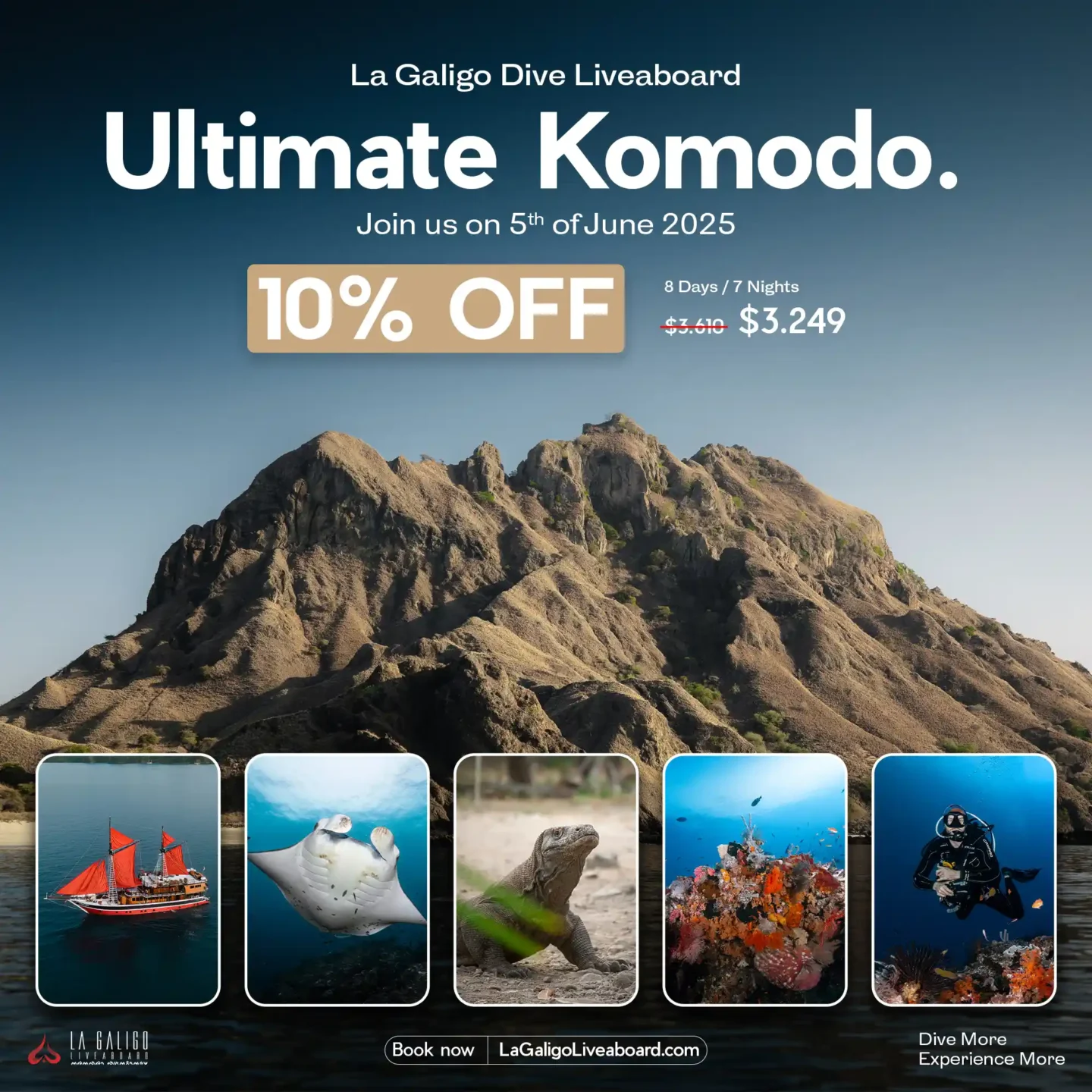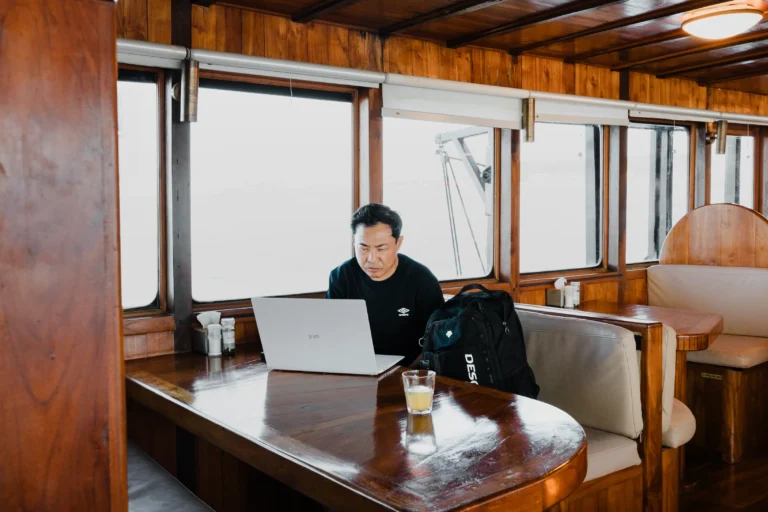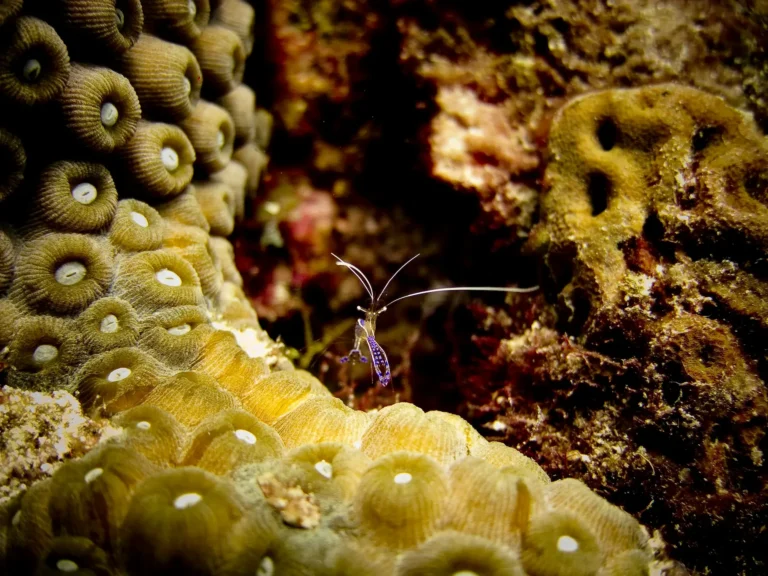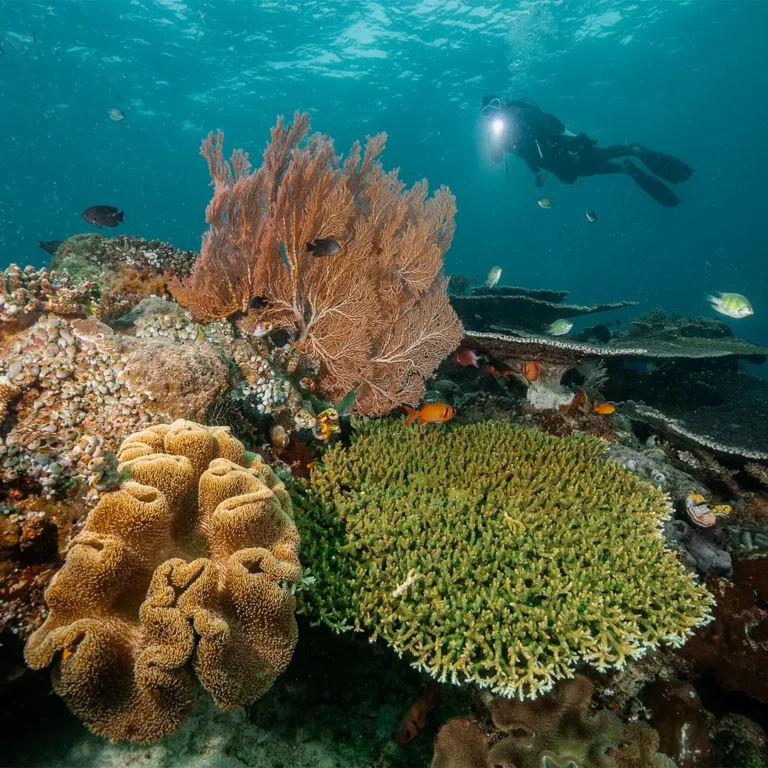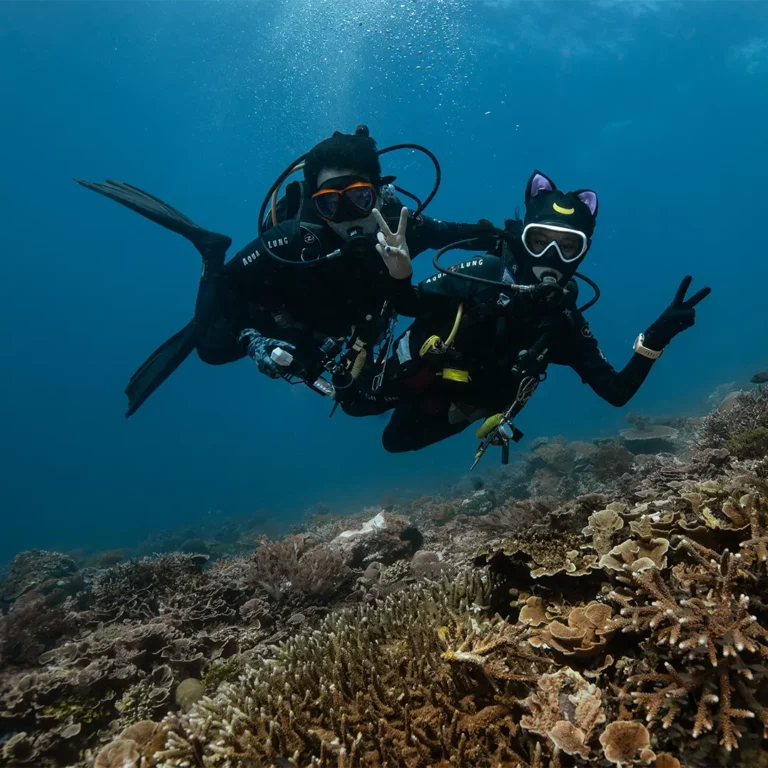As a scuba diver, there are many things that can be directly observed in the deep ocean. Scuba divers also have a responsibility for the sustainability of underwater life and its preservation.
It is our responsibility to help wherever and whenever you can as climate change and increased pollution buildup has a major impact on the oceans.
There are many amazing opportunities to enjoy our planet in a powerful, responsible way, and it’s time to do what we can.
Here are some of the best ways to become an eco-friendly diver…
1. Choose a reputable diving operator
In planning a diving trip there are things you need to consider, the first of which is choosing a trustworthy organisation.
It’s important to do your research as there are many businesses out there that don’t care about marine issues such as dropping anchors carelessly, poor safety protocols and polluting dive sites.
Looking for official dive centres and liveaboards is the best place to start, as official dive operators are usually proven and trusted to meet strict regulations.
You can do this by using a search engine and selecting their website.
If possible, always advocate responsible practices, to find out more about the dive operators core values and ethics, check online reviews for positive consistency, and speak directly with the dive centre or liveaboard.
2. Practise good buoyancy control
Maintaining neutral buoyancy is an important skill in diving. It helps the surrounding marine life and makes diving more enjoyable. Marine life can be frightened of sudden movements, which can make them panic, forcing them to flee and disrupting their natural behaviour. Also one little bump into coral can easily destroy years of growth. Respect the sea wholeheartedly, check your weight, adjust if necessary.
When you are underwater, pay attention to your position; don’t forget that you now have a much longer tank and fins. It’s important to be aware of any equipment that might drag on the seabed, disturbing any sediment as you go, and harming marine life.
Remember that you don’t need to rush underwater; you just need to enjoy the calm, slow movement at all times.
3. Don’t use gloves
Almost every diver has a pair of gloves in their dive gear, either to keep their hands warm or to prevent dangerous situations.
However, one thing to note about gloves is that they tend to give a false sense of security, giving the impression that divers can touch anything they want. In reality, some dive operators have enacted a “glove-free” policy in their efforts to prevent divers from making this mistake. Chemicals on your skin can damage and kill coral with only the slightest touch without you knowing it. Educated and environmentally conscious divers know not to touch anything underwater unless removing trash or using a reef hook on non living parts of the reef.
Of course, depending on temperature and other factors, some places in the world require different types of diving equipment. You wouldn’t dive in a dry suit in Canada without a pair of gloves. Therefore, a good thing to do while diving is to get used to avoiding touching your hands completely.
4. Make zero contact
This is very important, and there are a few things to note. First and foremost, do not feed the fish. Aquatic life can be greatly affected by their modified daily behaviour patterns and damage the local environment will occur if they eat unnatural foods.
Don’t chase them either. While lining up for the perfect photo can take a long time, don’t be tempted to chase moving animals. You will only cause panic and worry! We are literally strangers underwater to marine life.
We should respect them at all times and not touch or take anything from the ocean, including corals!
5. Use sustainable goods
Being an eco-friendly diver not only has a positive impact on the underwater environment but also on our health! Plastic waste when bio accumulated over time is toxic, and is non-biodegradable being made from various oil-derived products.
Plastic is very harmful to the soil, water, air, and even to our bodies. Most plastics don’t recycle well, ending up in landfills around the world, but sometimes it doesn’t get there. Instead, plastics can end up in our oceans, confusing animals searching for food, entangled or suffocating them, and eventually killing them.
You’ve probably seen the photo of the poor turtle with a plastic straw up its nose, right? Stop buying single-use plastics and replace them with more sustainable items such as reusable water bottles, reusable shopping bags, straws made of steel or bamboo, and reusable cutlery.
ALSO READ : Scuba Diving Fear: Identification, Knowledge and How to Overcome Fear
6. Be a smart underwater photographer
While many people enjoy taking scenic photos while diving, it’s important to do so smartly. Always keep your distance from sea creatures, move slowly, and make sure you don’t pose a threat.
Turn off your camera flash if a particular subject matter is photosensitive, and never trap an animal from being able to exit from a situation. The same advice goes for flashlights. Don’t use the flashlight directly on things that may blind or confuse them. A beautiful photo is always a great keepsake. However, think about your topic first.
7. Raise awareness about environmental responsibility
Reporting environmental issues you may encounter is part of being a responsible diver. Like making notes of endangered species and coral bleaching in your logbook or even reporting environmental violations you may see. By putting your data or photos online and letting the world know what’s going on, it’s vital to help conservationists find problem areas. Report it and help raise awareness!
8. Becoming a charitable diver
An eco-friendly diver should give back, and there are many ways to do so. First of all, find a beach clean up nearby and get involved.
There’s nothing better than getting together with other like-minded people and working together to remove trash and plastic from the beach. Some dive centres offer all-day activities that allow everyone to get together and relax while diving or snorkelling. Also, by providing information and raising public awareness, you can help local marine conservation projects and various marine conservation charities.
9. Exemplifying environmental responsibility for divers committed to sustainability
This recommendation, which is more of a reminder, is to always lead by example and actively help clean up trash from land and sea. Cigarette butts, various types of plastics, and fishing nets are the biggest culprits.
Everyone should remove litter as much as possible and inform their friends and family about the importance of it. Let’s make a conscious effort, be a force for good, and most importantly, clean up after ourselves properly, whether at sea, on land, or underwater!
ALSO READ : How to Balance Airspace and Ear Pressure When Diving
10. Choose a liveaboard that cares for the environment
Liveaboards face extra sustainability challenges to land based operators due to being based on the water. Solid and liquid waste disposal, as well as engine discharges etc must be adequately managed by these operators.
If you want to dive in Indonesia, the greatest diving spots are Raja Ampat and Komodo, both located in sensitive marine national parks.The best way to dive these spots is using the best liveaboard company you can find, one of our recommendations is La Galigo Liveaboard. They will provide an amazing diving trip, which is also focused on the preservation of the underwater world.
La Galigo Liveaboard have committed to being an Eco friendly operation by taking the following measures;
- Waste recycling in all operation areas (Labuan Bajo & Sorong Ports).
- Ban of plastic water bottles and providing reusable drink containers.
- Reef friendly sunscreen policy only with cost price sunscreen available onboard in case you forget.
- Replacement of cleaning products with natural reef safe alternatives.
- Natural and reef friendly personal hygiene products.
- Ecologically sensitivity training to dive guides with strict no touch, no feed policies for all guides and guests.
- Well maintained engine and oil water separator to eliminate hydrocarbon discharges to water.
- Voluntary contributions to local conservation charities in Raja Ampat (The SEA People) .
- Sponsorship of litter catching nets in rivers in Bali (Sungai watch)
- Promotion of citizen science fauna conservation initiatives with guests (Manta Matcher Program).
- Work with local and international organisations for the promotion and education of industry best practises for conservation and building sustainable tourism (WWF and Conservation International)

